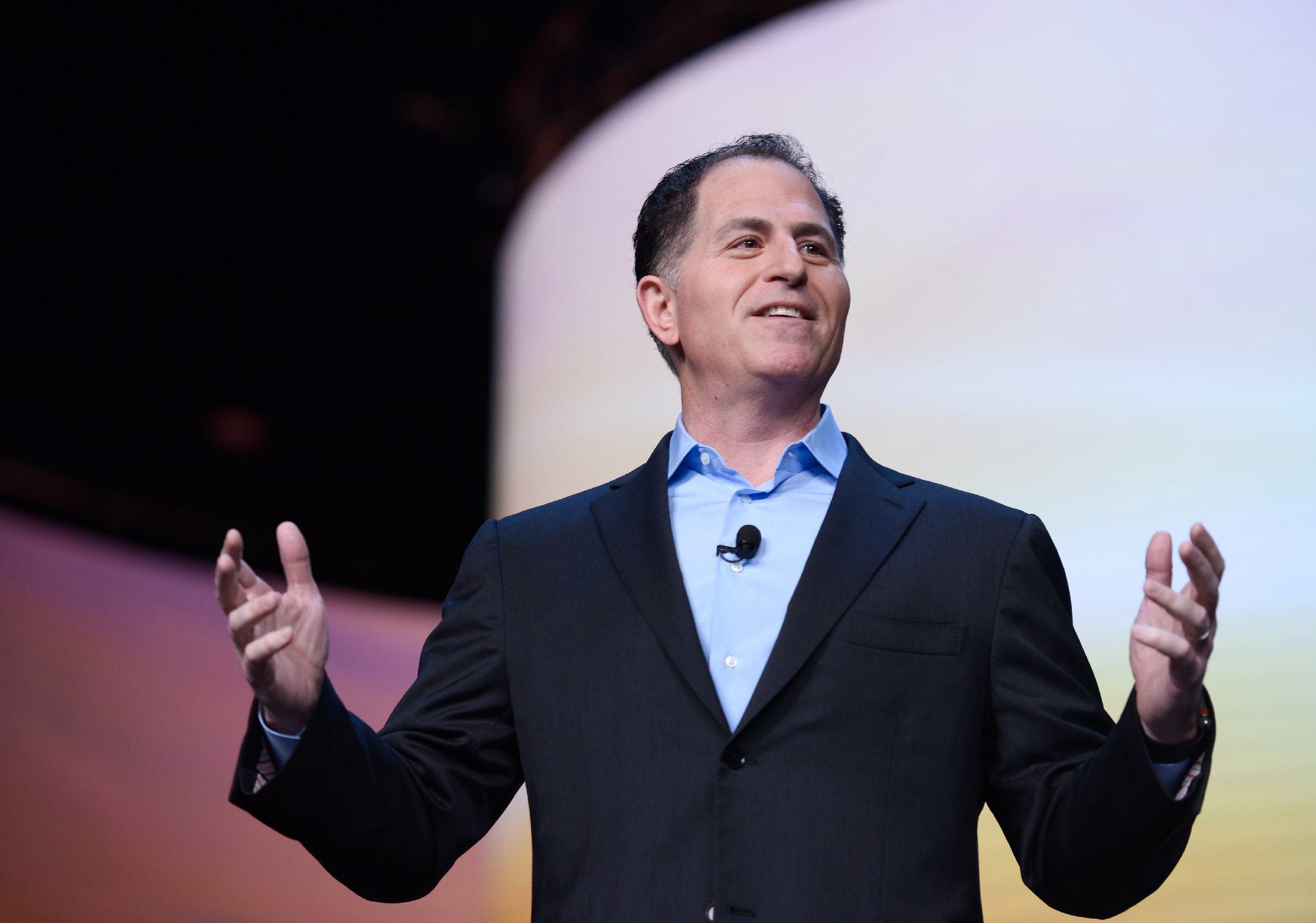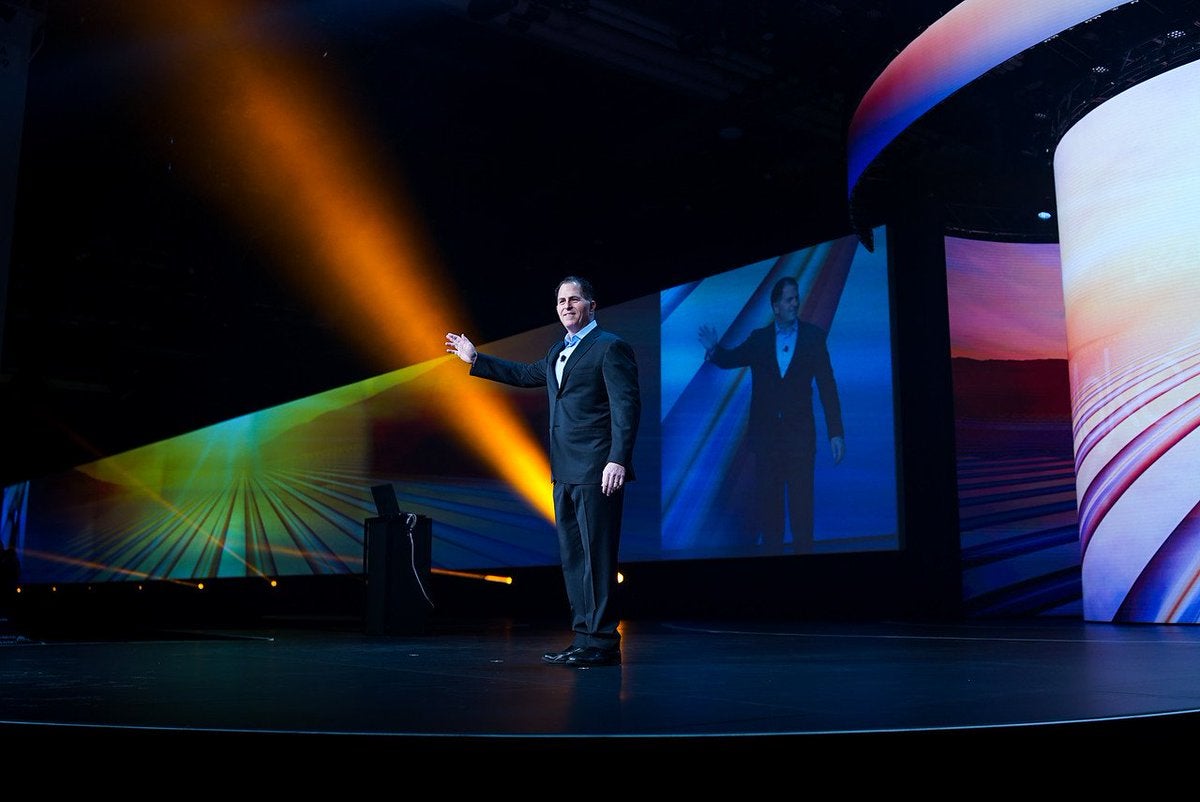
Verdict was exclusively invited to a round table with Michael Dell at Dell Technologies World earlier this month.
Here the founder and CEO of Dell Technologies shares his thoughts on digital transformation, government projects and what he learnt from Black Mirror.
What is your message to the audience at this conference?
“The key overarching message is that Dell Technologies is the best partner to help customers with their digital journey. We saw announcements on VMware, Cloud, Azure, the creation of the Dell Technologies Cloud and all the innovations going on in our data centre capability. The new Unified Workspace with our client products, dozens of individual product announcements around all of our portfolio solutions; all of this is resonating very well with customers. Ultimately we’re supporting the broader digital transformation that partners are undergoing.”
How do SMEs become part of that digital transformation if they don’t have the resources to bring in the experts, consultants and equipment?
“We have 18 countries that we’ve identified where we’ve said we’re going to bring our capabilities to small and medium businesses as well. There are several reasons for this; one is they tend to need help and be underserved. For all customers there’s this idea of packaged solutions; they don’t want to be systems integrators any more and put together a puzzle piece of various parts themselves, and they’re looking for more of a complete solution.
“If you think about our VxRail, this is essentially an on-premise Cloud in a box that works with all the public clouds and has incredible capabilities and increasingly we’ll be able to manage that for the customers, like Data Centre As A Service. If you tried to do it yourself you would buy four or five different things then you’d buy some software – small businesses can’t really do that cost-effectively.”
Given the Dell Technologies World panel on “Optimism and happiness in the digital age” and the growth of technology like AI and ML, should technology reflect all of us or just the best of us?
“Whose best? Technology is neutral – technology doesn’t wake up in the morning and say I’m going to be good or bad today, it’s just there. We’re responsible to make sure that technology does good things. There are regulators who will help us do that if we, the industry, screw it up. I think we have to be thoughtful about this.
How well do you really know your competitors?
Access the most comprehensive Company Profiles on the market, powered by GlobalData. Save hours of research. Gain competitive edge.

Thank you!
Your download email will arrive shortly
Not ready to buy yet? Download a free sample
We are confident about the unique quality of our Company Profiles. However, we want you to make the most beneficial decision for your business, so we offer a free sample that you can download by submitting the below form
By GlobalData“We’re not a business that uses customers’ data and makes money from it; customers own their own data. We are making incredibly powerful tools and AI is becoming more and more powerful, but I am tremendously optimistic that the vast majority of uses of technology will be for very positive outcomes, even though when somebody turned up with the wheel good things happened, bad things happened and mostly really good things happened and I believe technology will continue this way.
“In the UK you have this great TV series called Black Mirror – I love watching it as it tells us what not to do!”

What is your biggest lesson learnt from Dell’s own digital transformation?
“All these transformations are like a race with no finish line. If anyone ever says we’re done with digital transformation, you know that person isn’t telling the truth. It’s an ongoing thing. A big part of this is organisations have to reimagine and reinvent themselves constantly given all the new technologies.
“We have a saying inside our company “please but not satisfied”. It’s this idea of continuous improvement; the Japanese call it kaizen. We’re successful because we listen to our customers and create capabilities that help them solve their current, and hopefully their future, problems, and if don’t do that we’ll go out of business. That’s how we think about our company, so we have to constantly evolve.”
Dell won a $231m contract in March to help the US Navy move its IT systems to the Cloud, with the astoundingly quick delivery date of 2021. Does this signal a step-change in governments working with industry to deliver IT projects on a timescale closer to commercial business?
“I think we have seen governments start to think about technology in a different way. If you go online and do a search for the words ‘Kessel Run’ and ‘Pivotal’ you’ll see a very interesting story that the US Air Force has disclosed about how they’re using Pivotal Cloud Foundry to deliver software in a very rapid way.
“I think more and more government organisations around the world are figuring out what all businesses are starting to understand. One, there’s been this explosion in big data and you have to figure out how to turn the data into insights and outcomes very quickly, and two, you have to express your competitive advantage in software with your data. If you’re not doing that you’re probably doing it wrong.
“If you take your typical government organisation where they might have had a ten-year project, well that’s just insufficient given the pace of change. Citizens are also demanding a different kind of government; if they can go and click on things in the rest of their life everything happens in one click, but then they go to the government then have to press hard for five times on the form and that’s not going to be acceptable.”
Read more: Ten things we learnt at Dell Technologies World 2019







